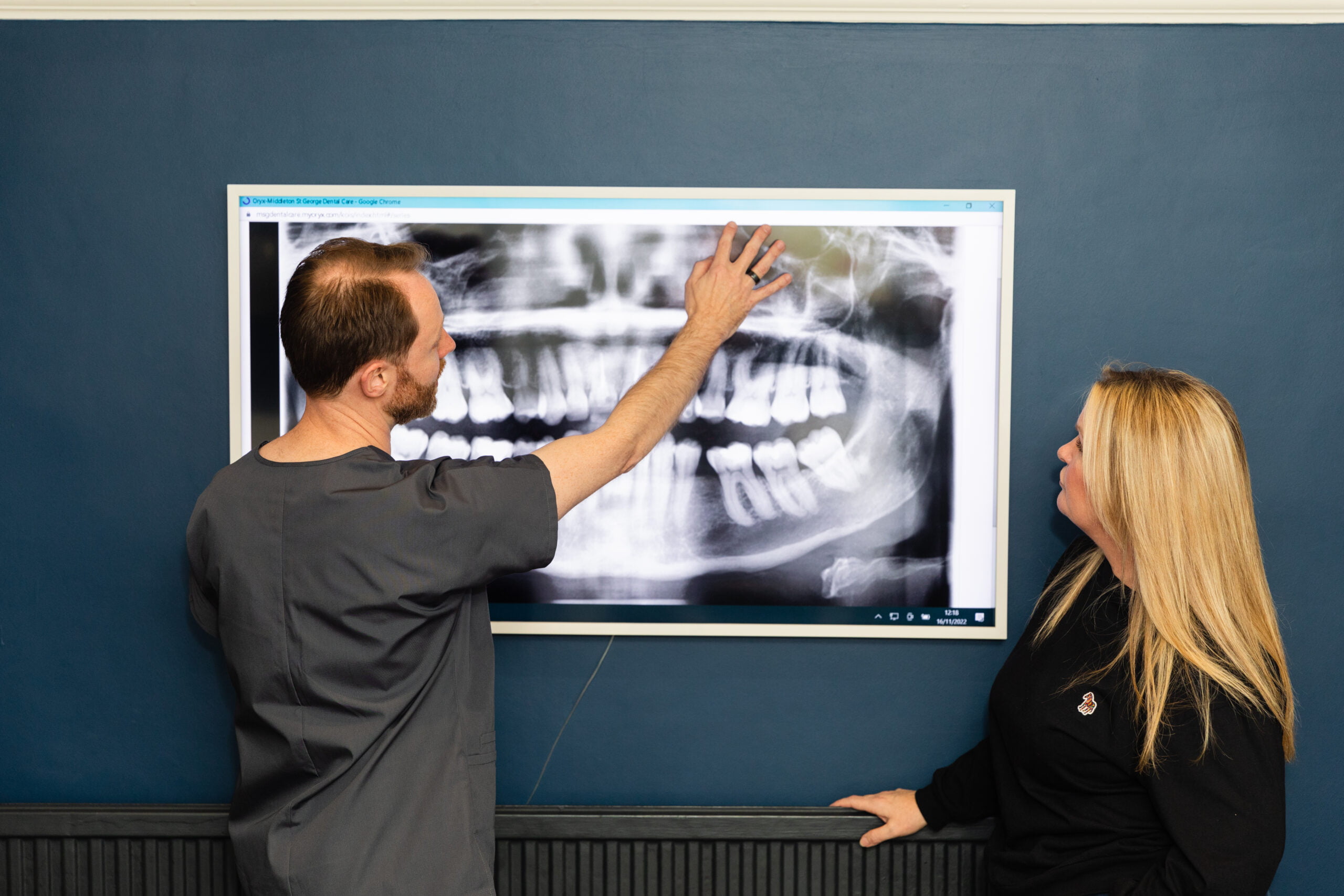What are dental implants?
Dental implants are titanium posts which are surgically placed into the jawbone to replace missing teeth or to support a denture. The implant functions as the root of a tooth and, depending on the number of implants placed, can be used to replace everything from a single tooth to a full arch of teeth. It takes an average of 3 months for the jawbone to integrate with the implant before it can be used to support a dental restoration.
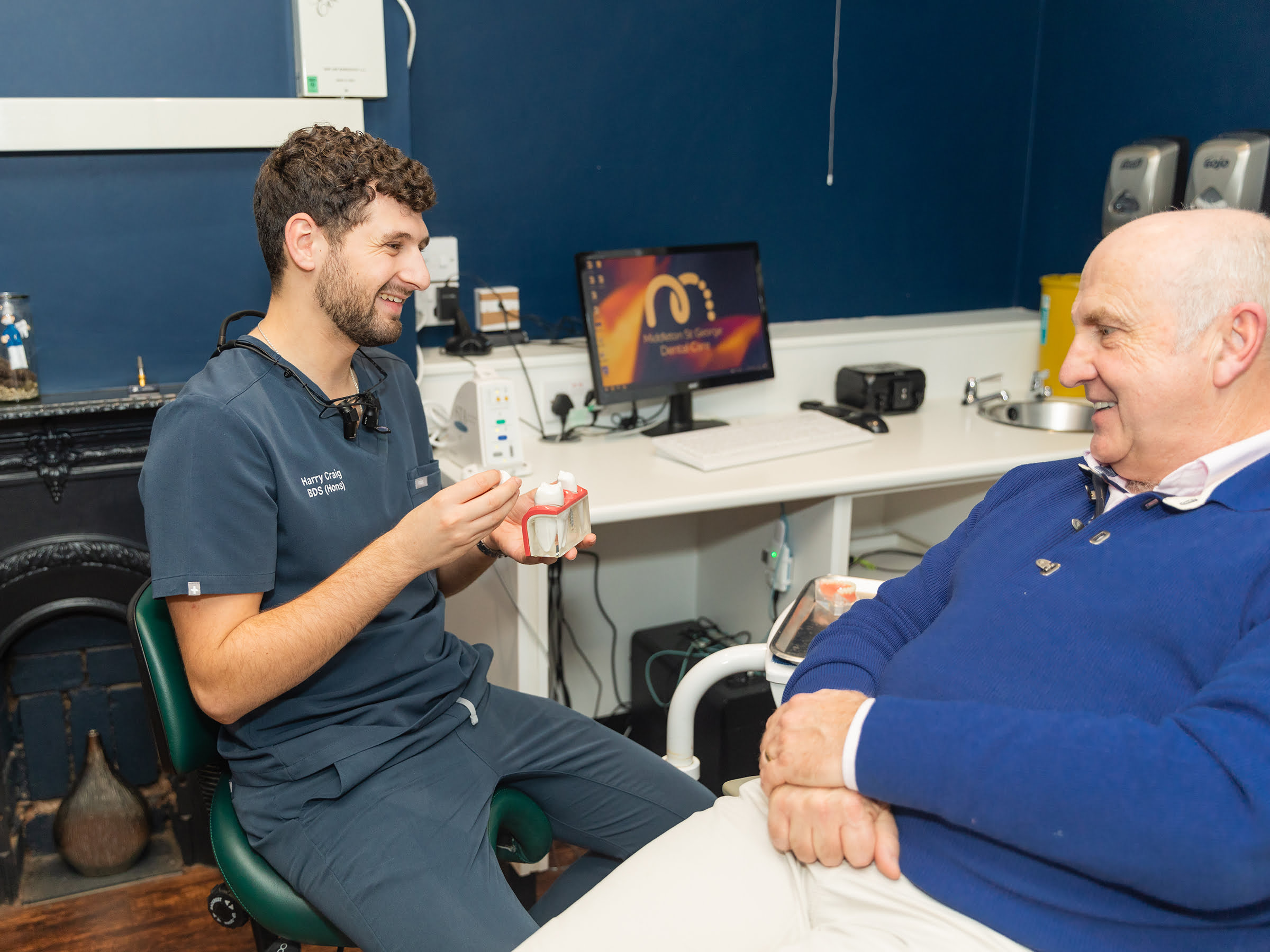
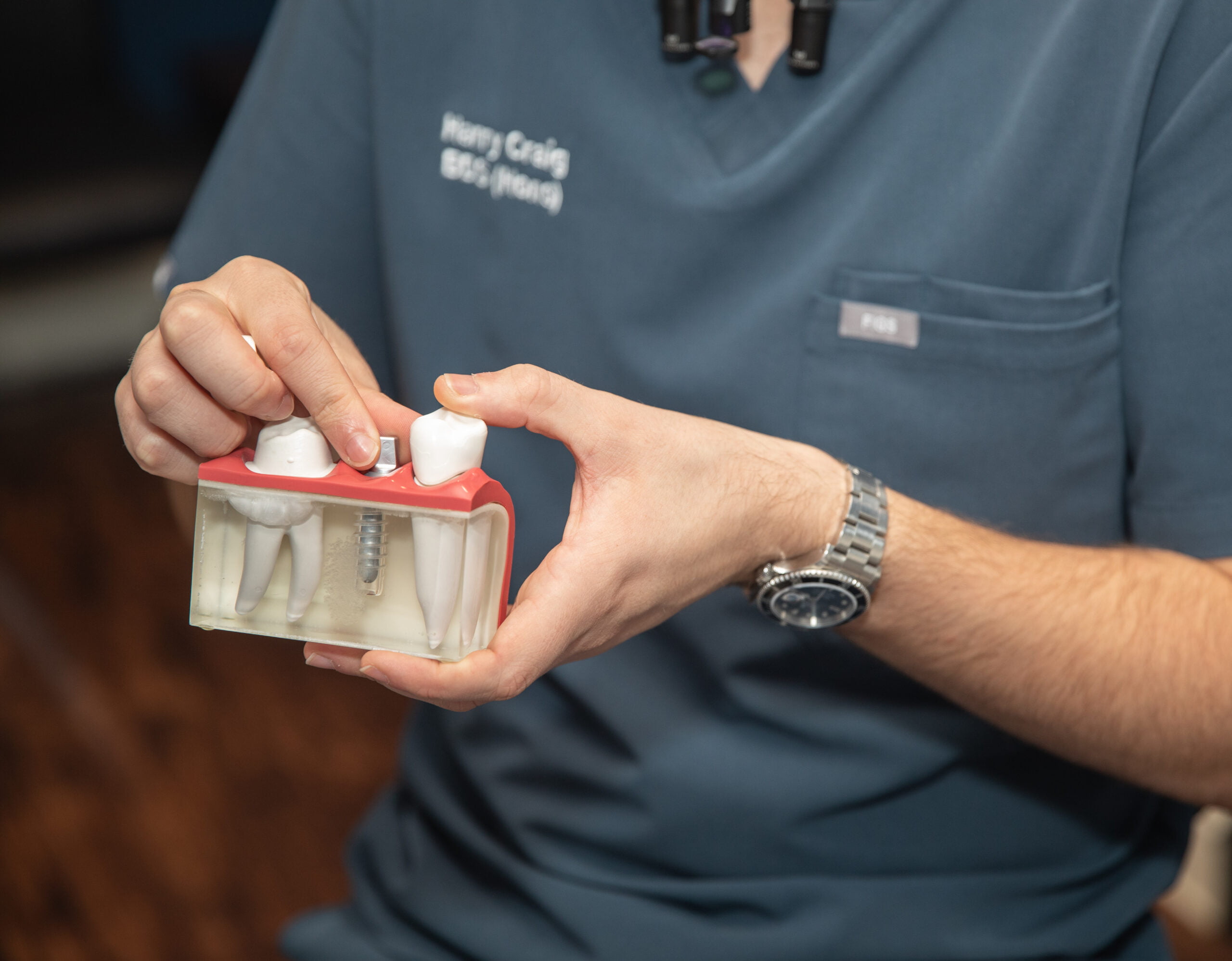
Why should I choose to have a dental implant?
Dental implants provide long term stable and supported replacements for missing teeth. They enable you to regain the appearance and function of natural teeth, and eliminate the worry that your restoration will slip and move.
A missing tooth can significantly affect the way you eat, speak and feel. It can also cause your facial shape to lose structure and begin to sag, as your remaining teeth have space to move out of position and your gum can shrink over time. Dental implants can greatly improve both your confidence and quality of life, giving you back a full smile and vital support for your jaw, existing teeth and face.
Let’s get startedWhat are the benefits of dental implants?
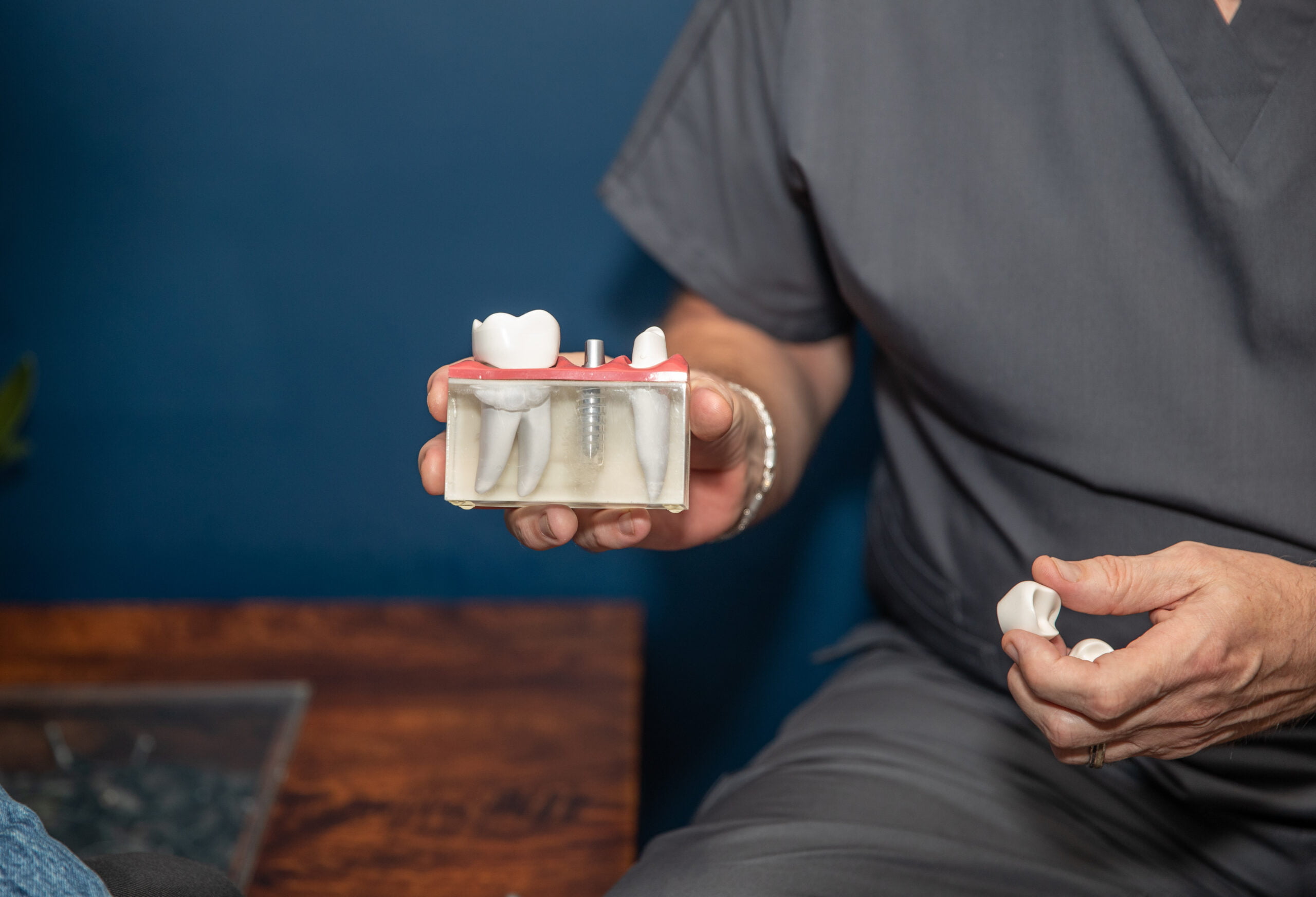
Supportive
Dental implants help to preserve and maintain healthy jawbone in the area of the missing tooth or teeth and help sustain your facial structure.
Strong
Dental implants stay firmly in place and will not move when you eat or speak. As they are integrated with your jawbone, they will not become loose over time.
Natural looking
Dental implants look and act just like natural teeth. They fit seamlessly with your other teeth and enable you to smile with pride.
Innovative
Dental implants use the latest digital technology combined with the skills and expertise of our team to create a truly stunning restoration.
Any questions?What does the treatment involve?
Dental implant treatment can take several appointments to reach the desired outcome. However, it will all be worth it once you are flashing your new winning smile!


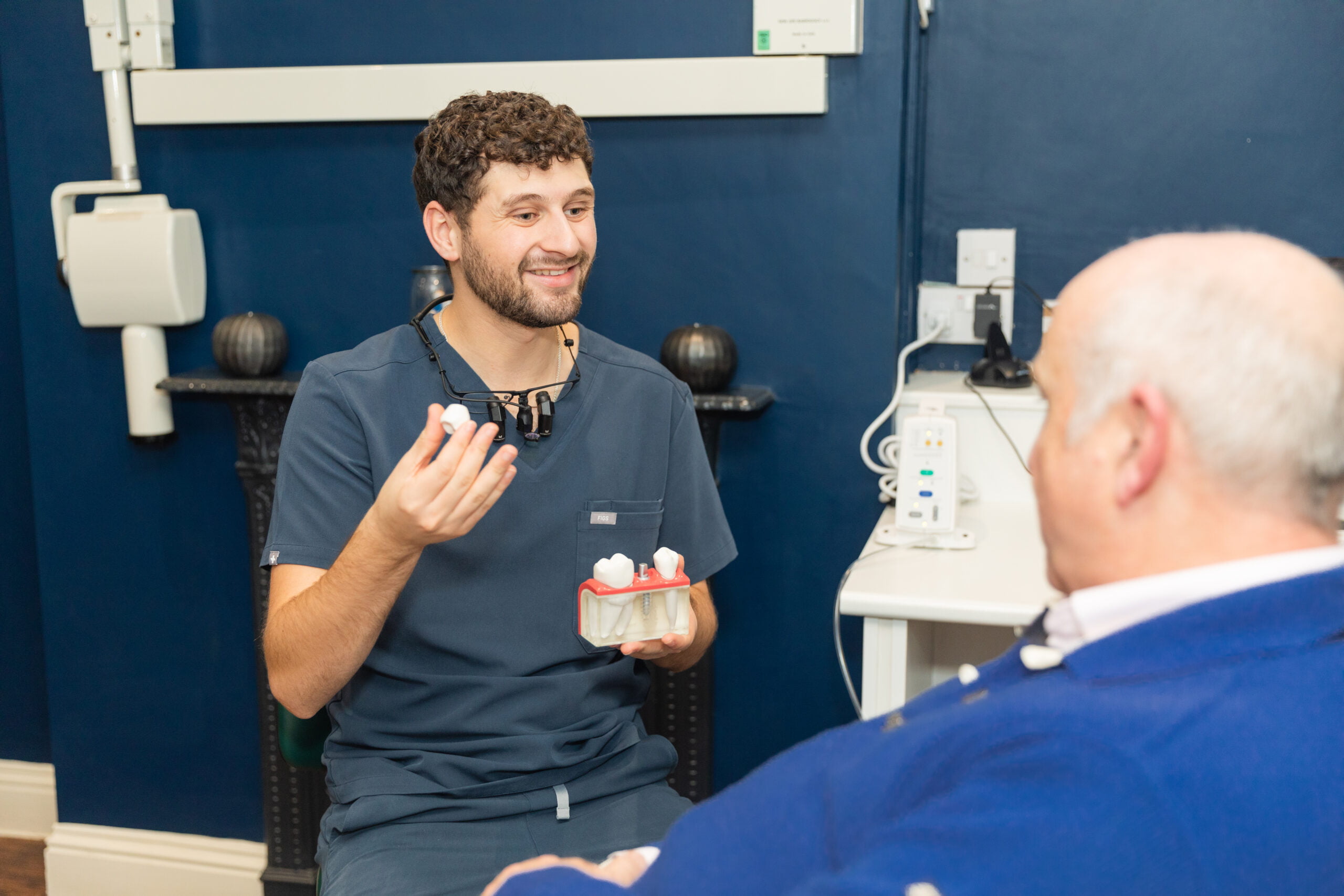
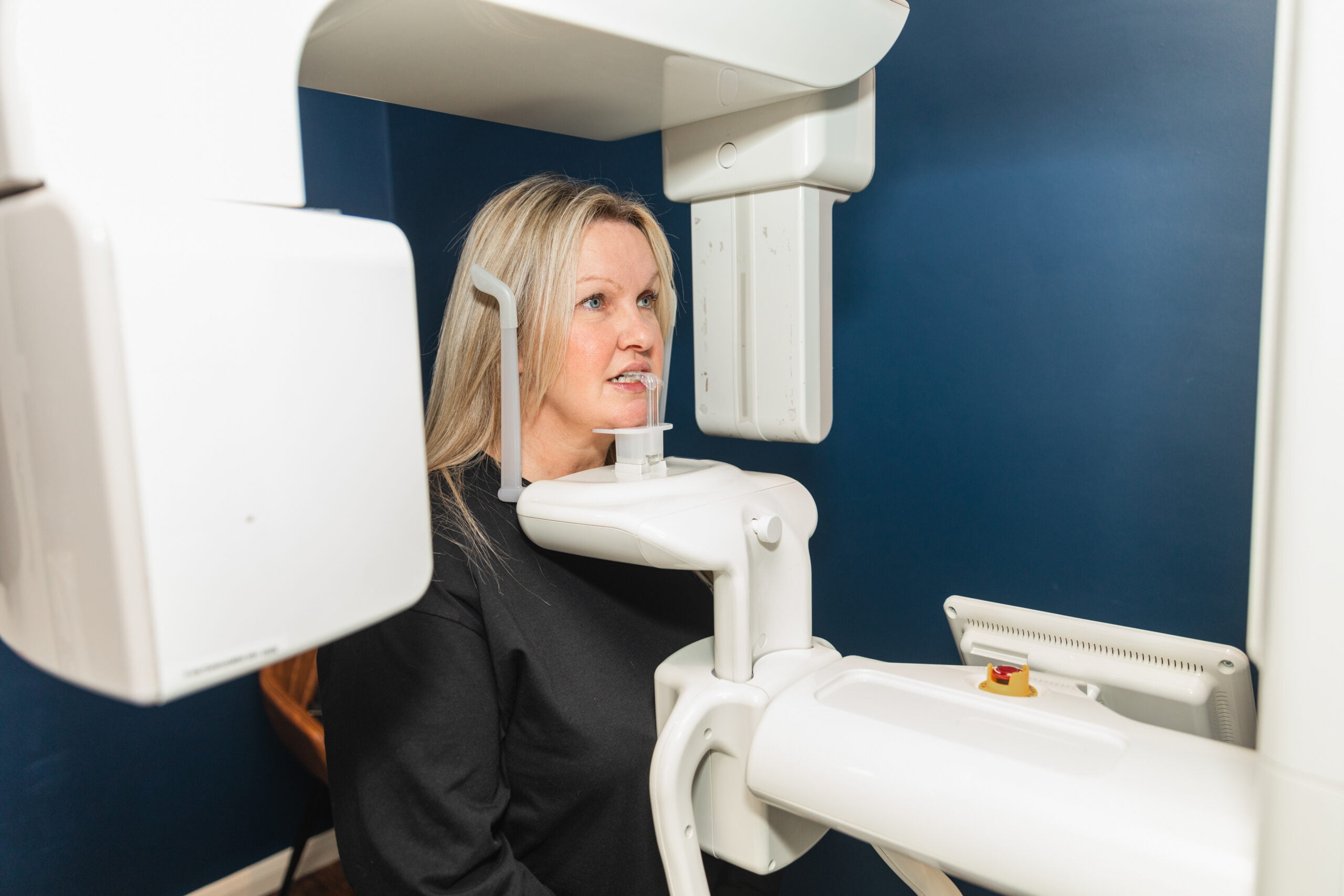
-
Consultation
We invite you to come in for a full face to face consultation, including a thorough examination and assessment of your teeth and gums. We ensure you are suitable for implant treatment and agree on your treatment plan, including a timeframe and estimated costs. -
Planning & preparation
We use cutting edge digital scans, images and x-rays to accurately plan the optimum positions for your implants. If any preparatory treatment is needed, such as a bone graft, we schedule and complete this. -
Fitting & healing
We place the titanium implant in your jawbone, taking care to use local anaesthetic to minimise any discomfort. The implant will take around 3-6 months to fully heal and integrate with your natural bone. To protect your gum during this healing process, we fit you with a temporary tooth. -
Treatment complete!
When your implant has fully healed, we fit your custom crown or bridge to finish your new smile. We make sure you are comfortable with how to care for your implant and answer any of your questions before leaving you to enjoy showing off your smile!
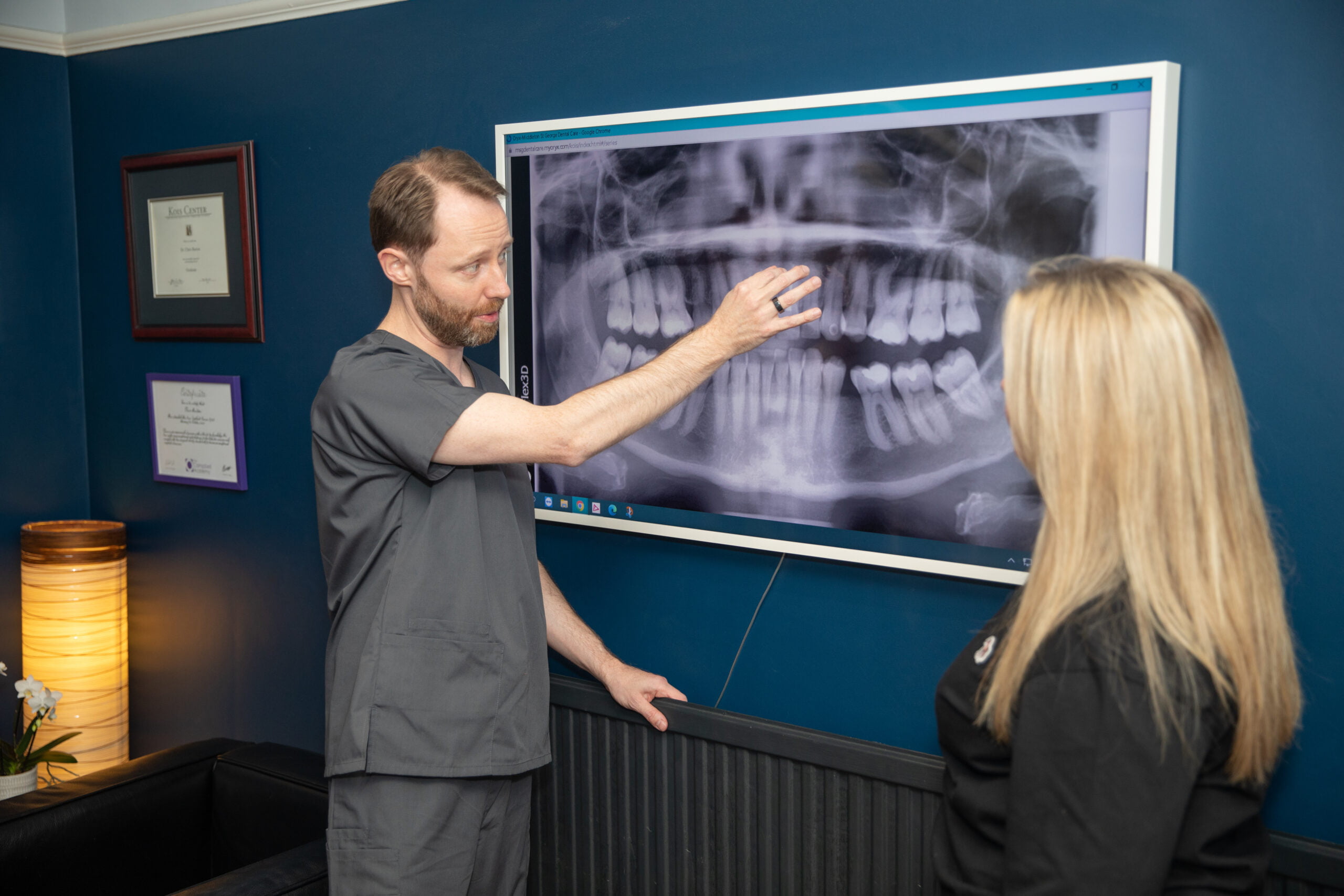
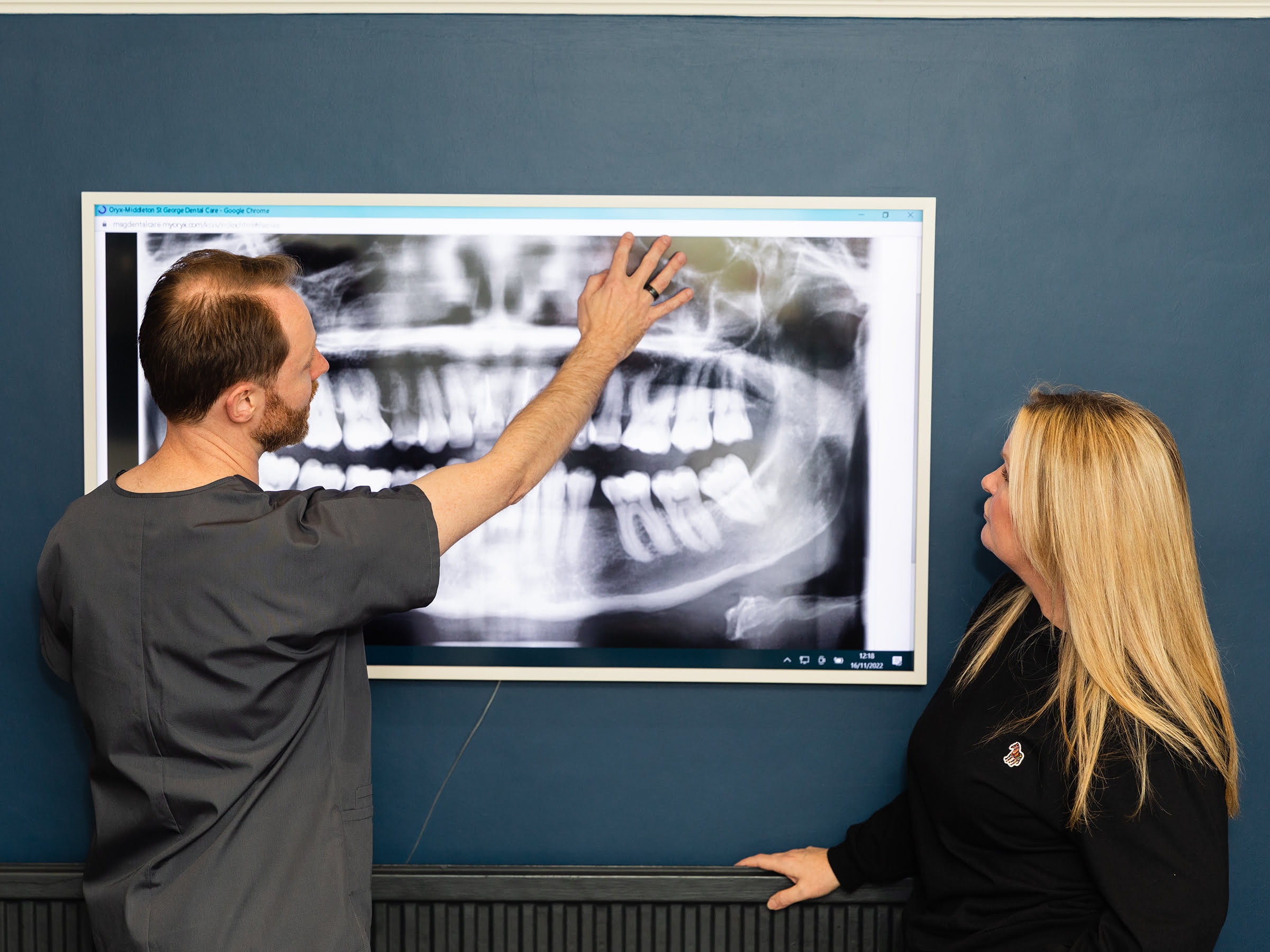

Treatment results
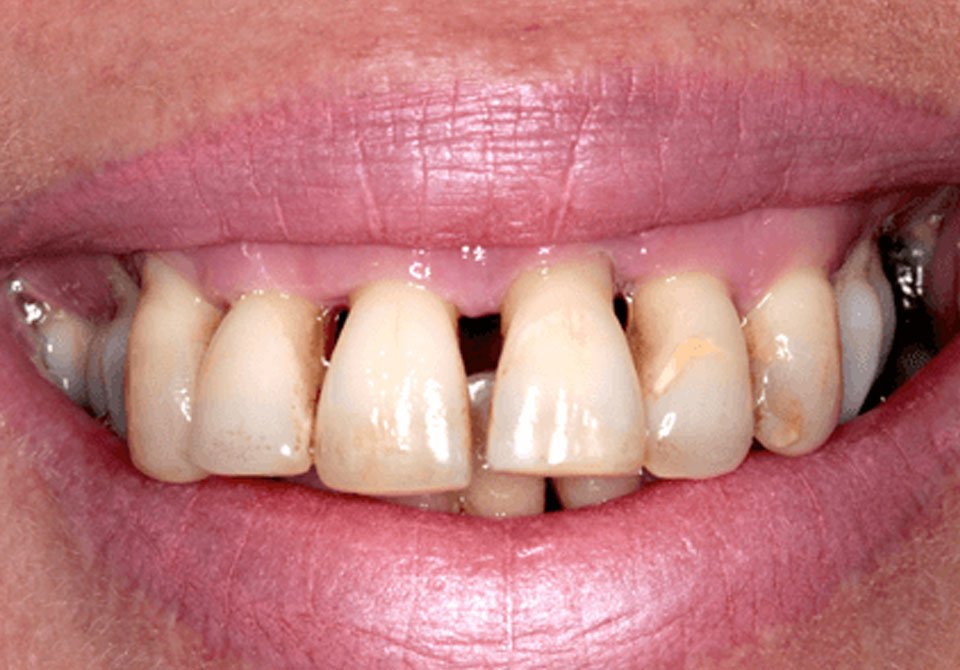
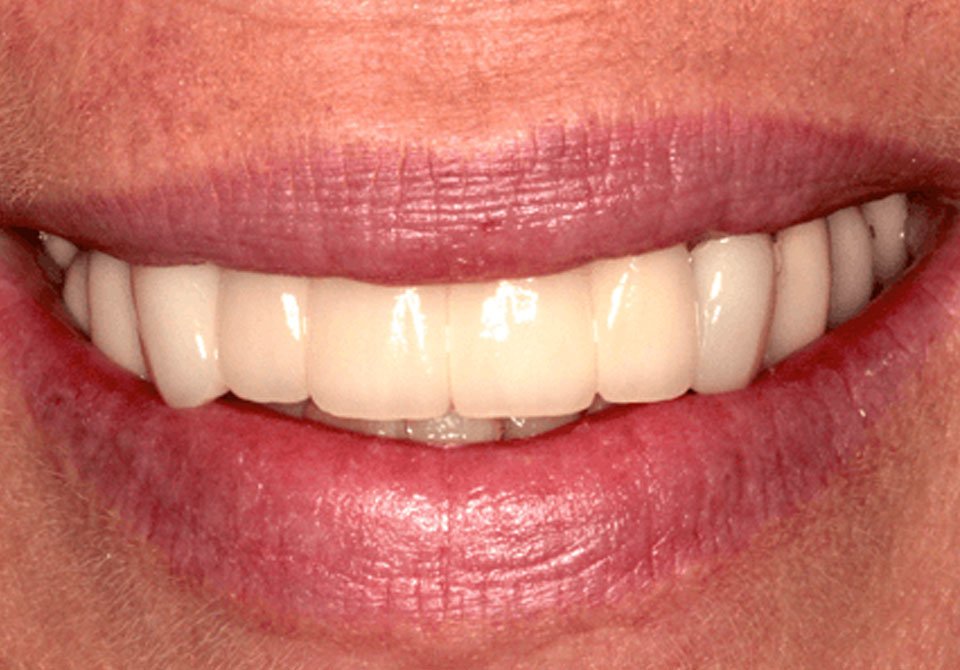
Before treatment
This lady had been unhappy with her front teeth for years. The front 4 teeth had been so badly affected by gum disease that they needed removing.
After treatment
Once the front 4 teeth had been removed, 2 dental implants were placed, supporting a porcelain bridge, and the rest of the teeth in the upper arch were restored with crowns to give them back their natural appearance and function.
See more resultsFrequently asked questions
-
What are dental implants made of?
The most common material used for a dental implant is titanium or a titanium alloy. Ceramic may also be used in patients wishing to have a non-metallic option.
-
What are the benefits of having a dental implant placed?
There are many benefits to having an implant placed. A missing tooth can be replaced without cutting down the adjacent healthy teeth as is required when placing a bridge. Implants allow the dentist to replace missing teeth even when a bridge is not an option. Dental implants can provide a more stable base for a denture, particularly in the lower jaw. Also, dental implants help to preserve and maintain healthy jawbone in the area of the missing tooth or teeth. With proper home care and maintenance, dental implants can restore your smile and chewing ability for a lifetime.
-
What are the risks associated with a dental implant?
There is always a small chance that the dental implant will fail to integrate with the jawbone and have to be removed. Certain medical conditions can put you at a higher risk for implant failure. As with any surgery, there is a potential risk of surgical complications when placing a dental implant. Improperly positioned dental implants can make it difficult–if not impossible–to place a useful dental restoration in the mouth. Implant supported restorations do not have the same feeling as a normal tooth and it is possible to put too much pressure on them when chewing, leading to damage of the implant restoration or opposing tooth.
-
What is the alternative to replacing a missing tooth with a dental implant?
Bridges, dentures or partial dentures can replace missing teeth without requiring implants. The missing tooth or teeth can also be left without replacement. This, however, can lead to other problems such as an unstable bite or unwanted movement of the surrounding teeth.
-
Can a bite affect dental implant placement?
If you have a misaligned bite, the restorations placed on the dental implants will be at greater risk for fracture or failure. Proper alignment of the teeth prior to dental implant placement leads to a more aesthetic result. Bite and tooth alignment problems should be addressed prior to dental implant placement.
-
Are there any post-treatment limitations once I have a Dental Implant placed?
You should be careful not to disturb the surgical site immediately after dental implant placement. This means no chewing on the side of the implant and careful cleaning methods for several weeks to a month. The dental implant takes several months to totally fuse to the jaw, so fewer disturbances to the area means a higher success rate. If you have a temporary denture to replace your missing dentition, it is important that the denture does not rub on the surgical site.
-
How long do dental implants last?
Dental implants have the potential to last a lifetime if they are properly looked after. This includes maintaining an excellent brushing and flossing routine, looking after your general health and attending regular check up appointments with your dentist. The crown or bridge that the implant supports may need to be replaced over time due to normal wear and tear.
-
Is dental implant treatment painful?
We use local anaesthetic during dental implant surgery to ensure you are comfortable during the procedure and unable to feel anything we are doing. After treatment, it is normal to experience some discomfort, which can be managed with pain relief advised by your dentist. Implant treatment is often less painful than having a tooth extraction, and most people are able to return to their usual routines the next day.


